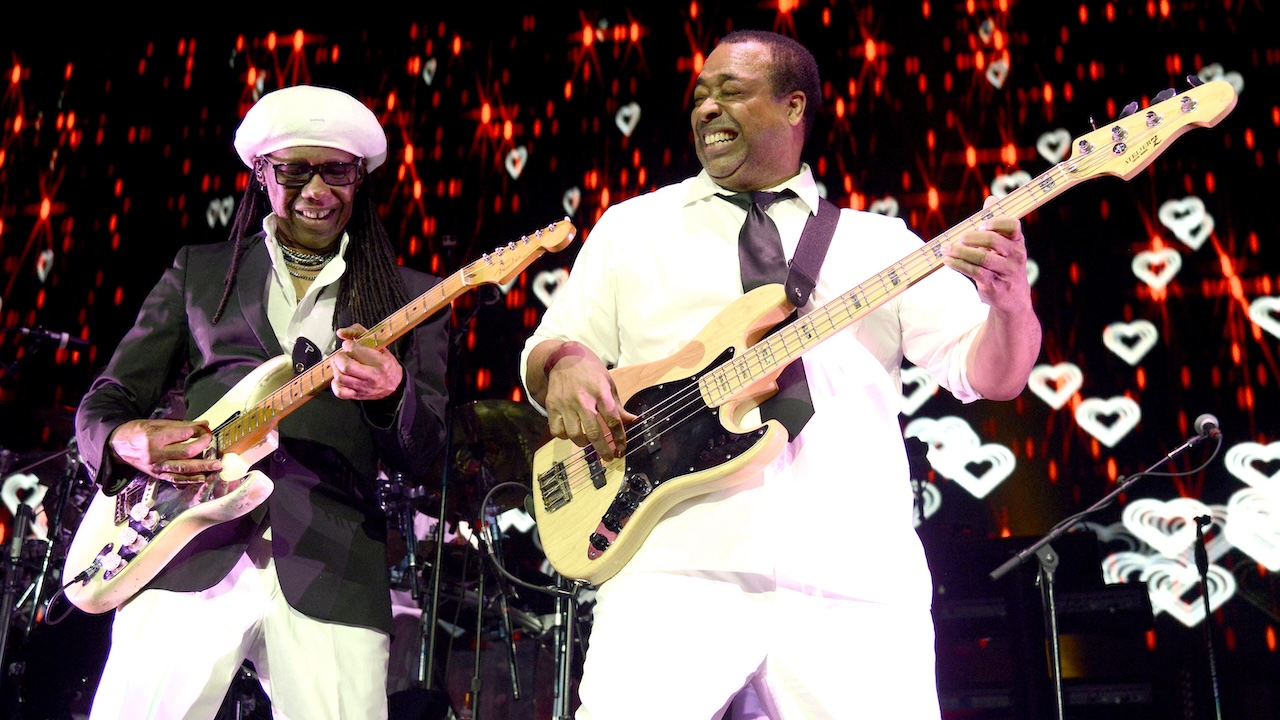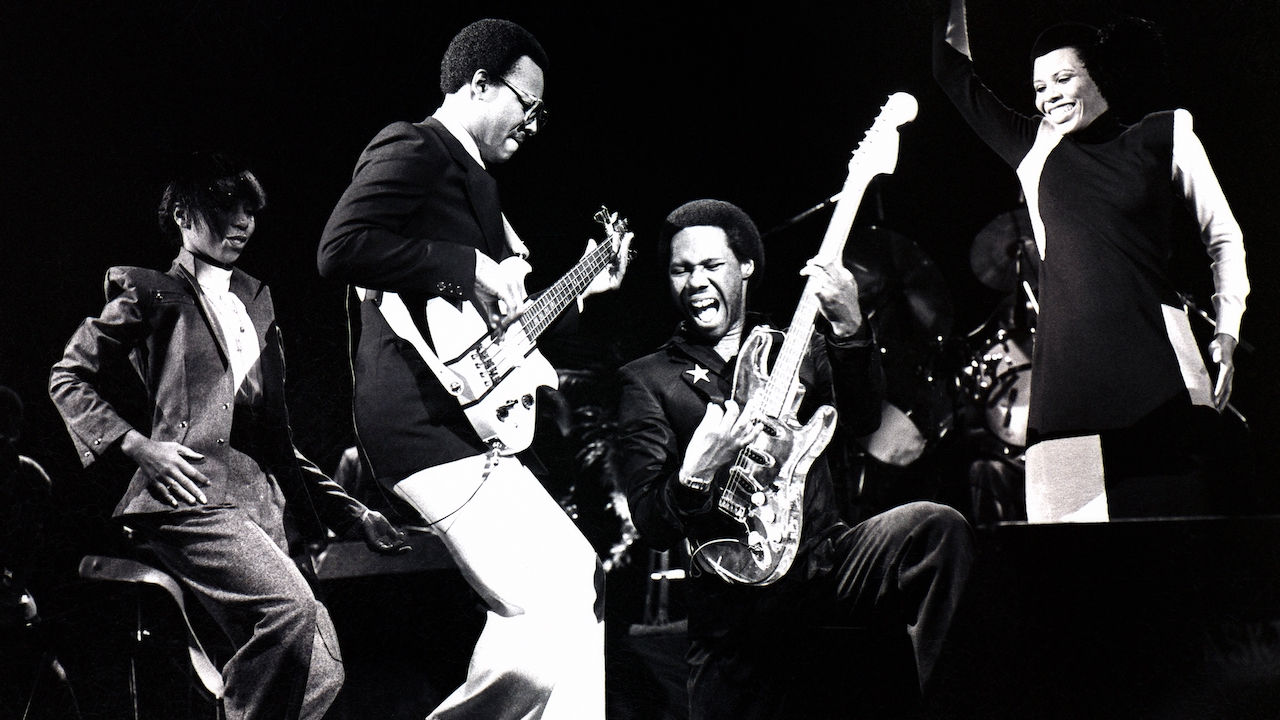
Gotham bass vet Jerry Barnes has bestowed his deep-pocketed dexterity upon Chic since the untimely death of groove god Bernard Edwards in 1996 – more than twice as long as the original band existed. But that didn't stop founder Nile Rodgers from breaking out in a smile onstage recently, when Barnes launched into Everybody Dance.
“I had been playing the bass part my own way, at the 7th fret,” Barnes told Bass Player. “But then I saw a video of Bernard Edwards playing it at the 3rd fret, using his ‘chucking’ technique, and I was determined to play it right – Nile picked up on that instantly.”
By now, the Chic backstory is near legend: after years of working in New York City clubs together, Rodgers and Edwards enlisted ex-LaBelle drummer Tony Thompson and two female vocalists to form Chic in dance-crazed 1977.
Emerging from the disco glare with something much more musically substantial and enduring, Chic released three smash albums in a row, and Rodgers and Edwards went on to produce artists like David Bowie, and Madonna.
But of all the Edwards plucked-'n'-chucked gems, Everybody Dance stands out, with blistering solo breaks extending from a bouncing ostinato. The nearly-seven-minute-long album version boasts maximum Bernard Edwards goods.
“Bernard came up with this opening bassline based on my original guitar part,” said Nile Rodgers. “Which I simplified after he started copying me because it sounded too busy with us both playing that style. It wasn't a bass guitar feature as much as it was the beginning of Chic's ‘breakdown’ style of songwriting.”
The song begins with Edwards’ drum-accompanied solo spot, utilizing his aforementioned ‘chucking’ technique. “Bernard would pinch his index finger and thumb together,” said Barnes.
“As if he were holding a pick, about midway between the neck and the bridge, and pivot with his wrist. The thumb would be further down his index finger, so what was striking the strings was his nail and fingertip; Nile said his finger would bleed onto his bass during long sessions!”
Edwards ‘chucks’ through the first two bars and for the Ab downbeat in bar 3, before switching to fingers for the A natural and the Bb's in bars 3 and 4 (including the pickup to bar 5). Note the open A's ghosted upon in bars 2 and 6.
At bar 9, the chords enter and Edwards reverts to a finger-plucked eighth-note-based groove, still with his trademark 16th-note pickups. This part continues through the first chorus.
At 02:59, the bass break returns, with Edwards developing the line, starting with his octaves and cool octave displacement. “Equally important to the pitches are the durations Bernard applies to different notes. Also key is the magical lock he had with Tony Thompson – they keep it tight, but relaxed at the same time.”
The vocal chorus comes back at 03:29, while Edwards remains in creative mode. High points include his reverse octaves and his ear-grabbing scamper up the neck at 03:46. He stretches out again underneath a new instrumental section consisting of doubled guitar lead lines by Rodgers and Eddie Martinez.

“What I dug most about Bernard's playing was the combination of originality and technique. He was influenced by bassists like James Jamerson, Chuck Rainey, Larry Graham, and Wilbur Bascomb, and like a lot of those guys, he used open strings in a cool way, including moving through them chromatically in flat keys.”
The outro includes the vocal chorus, with Edwards issuing his boldest step-outs yet. “I was blown away when I first heard it on the radio,” said Barnes. “This wasn't Weather Report or the Headhunters, it was a disco record! And Bernard plays so in the pocket that you don't take it as a feature. It's one of those tracks like Come Together or (For the Love of) Money; where the bass is the hook.
“Learn it slowly, and try to use Bernard's chucking technique in those sections. This level of playing deserves as much scrutiny as a work by Jaco or Coltrane. Try to really get inside the part and capture the honesty of it.”
In the same spirit, Rodgers concluded, “The overriding genius of Bernard is that he was one of the greatest organic, instinctual musicians ever.”







